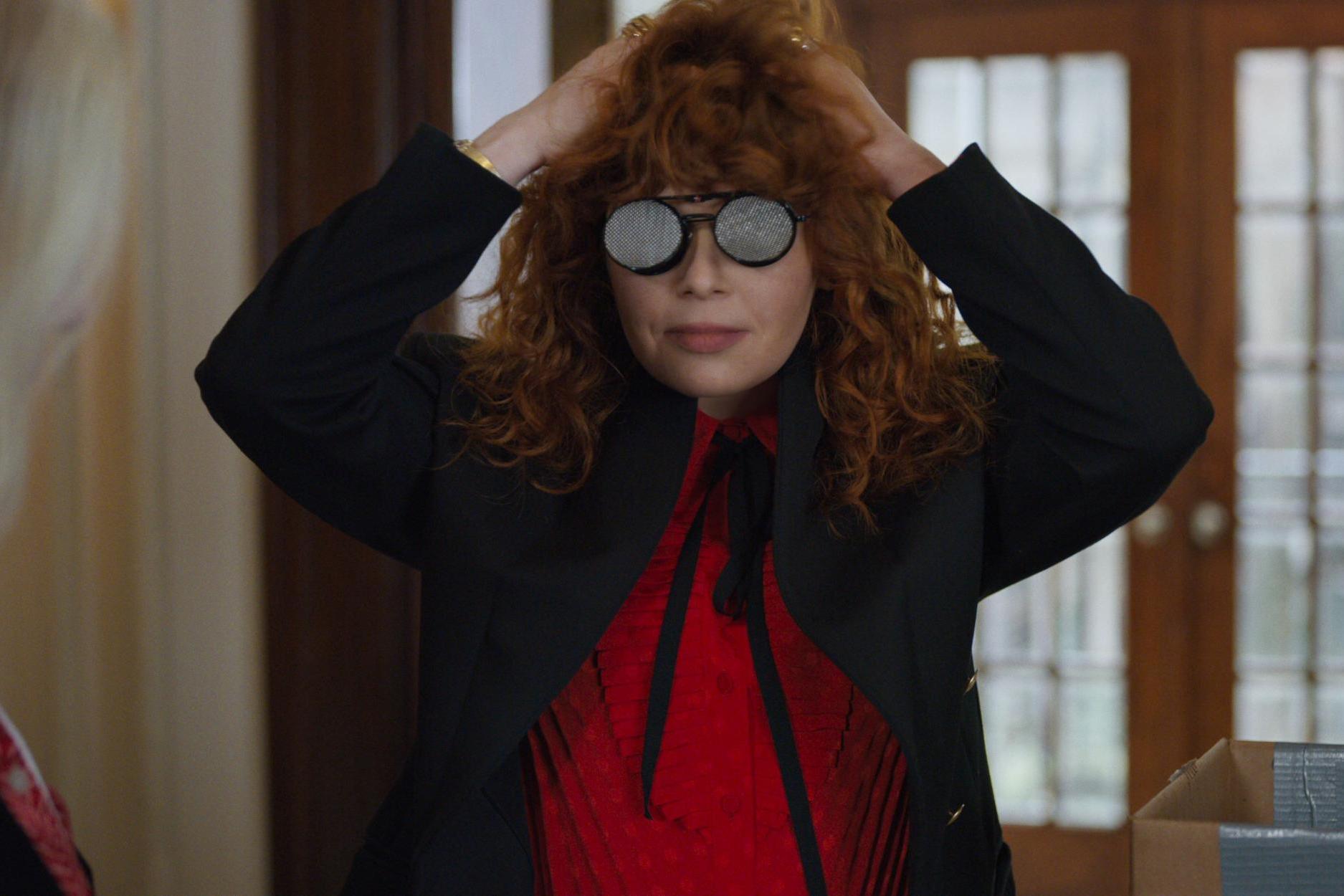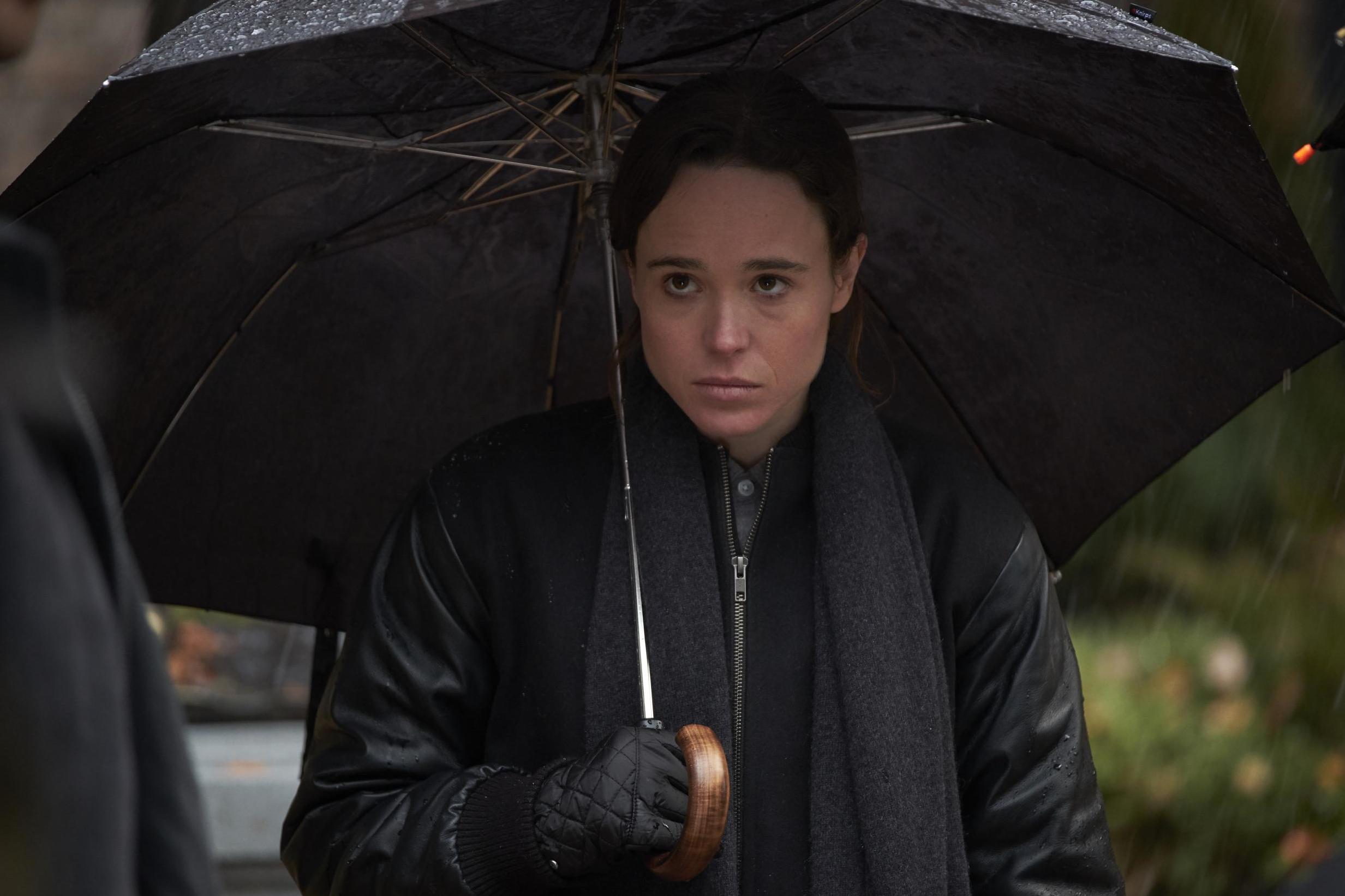Russian Doll and the rise of Netflix’s new weird
With ‘Russian Doll’, ‘Maniac’ and the forthcoming ‘The Umbrella Academy’, the streaming service has decided to nurture the weirdo within. Ed Power examines how Netflix came to provide these surprise delights

Your support helps us to tell the story
From reproductive rights to climate change to Big Tech, The Independent is on the ground when the story is developing. Whether it's investigating the financials of Elon Musk's pro-Trump PAC or producing our latest documentary, 'The A Word', which shines a light on the American women fighting for reproductive rights, we know how important it is to parse out the facts from the messaging.
At such a critical moment in US history, we need reporters on the ground. Your donation allows us to keep sending journalists to speak to both sides of the story.
The Independent is trusted by Americans across the entire political spectrum. And unlike many other quality news outlets, we choose not to lock Americans out of our reporting and analysis with paywalls. We believe quality journalism should be available to everyone, paid for by those who can afford it.
Your support makes all the difference.One of the charms of Netflix’s hot new drama Russian Doll is that it doesn’t try to make even the vaguest sense. This streetwise upgrading of Groundhog Day follows an ageing New York hipster (Orange Is the New Black’s Natasha Lyonne) trapped in a sodium-lit Möbius strip of life and death, pain and rebirth, birthday cheer and early mid-life ennui.
A deadpan gerbil in an existential maze, Nadia, our eponymous heroine, is seemingly condemned to relieve the night she turns 36 over and over. She snaps into consciousness in her druggy pal’s New York East Village bathroom and shortly thereafter suffers a nasty end, variously tumbling down the stairs or being mowed over by a taxi. And then it’s back, once again, to the toilet at the end of the universe and the opening strains of Harry Nilsson’s “Gotta Get Up”.
The premise is a mystery box with bells on. Is Nadia trapped in the afterlife? Has some divine being bunged her into a temporal loop in order to impart an invaluable life lesson? The big twist at the conclusion of the eight episodes, however, is far from a tidy resolution.
The ultimate secret – the how and why of Nadia’s resurrection – is hand-waved away. All along it was merely an avant-garde framing device by which Russian Doll, co-produced by Lyonne, Amy Poehler and director Leslye Headland, could argue that life is precious, human connection vital and that we should make the most of both.
Written down, it all sounds hopelessly unhinged and hugely niche. Who has ever sat down to Netflix and complained about the paucity of time-paradox comedies starring former Hollywood bad girls? And yet Russian Doll has become Netflix’s latest surprise hit, with reviewers uniformly swooning and Reddit clogged up with threads unpicking it scene by scene.
Such, it would appear, is the new paradigm in streaming television. Also thoroughly out to lunch is The Umbrella Academy, a new Netflix super-hero drama very different from the suck-in-your-gut ponderousness of The Punisher, Jessica Jones etc.
The Umbrella Academy is adapted from a graphic novel by Gerard Way, the orange-haired lead singer of emo band My Chemical Romance. And, to its credit, it is every bit as barking as you would expect a series adapted from a graphic novel by an orange-haired emo singer to be. The story starts in 1989, when 43 babies are born to mothers who were not pregnant that morning (strap in, it gets a lot weirder).
An eccentric billionaire, Sir Reginald Hargreaves, “purchases” seven of the babies and trains them as crime fighters. By adulthood they have grown into super-heroes with completely bizarre skill-sets. Their ranks include Allison, a celebrity who can alter reality by speaking “rumours” aloud.
There is also Klaus, a drug addict who talks to the dead; No Other Name, an adult marooned in a child’s body; and time-hopping assassin Cha-Cha, played by musical icon Mary J Blige. The best known cast-member, meanwhile, is Ellen Page as the White Violin, whose superpower is that she doesn’t have superpowers.

Watch Apple TV+ free for 7 days
New subscribers only. £8.99/mo. after free trial. Plan auto-renews until cancelled

Watch Apple TV+ free for 7 days
New subscribers only. £8.99/mo. after free trial. Plan auto-renews until cancelled

It is utterly gloriously, unapologetically cuckoo. As with Russian Doll, it is also garnering oodles of word of mouth buzz for Netflix and basking in excellent write-ups. Thus it is part of an ongoing victory streak for the streaming goliath, which had another big success last year with the thoroughly strange Maniac – a delving into mental instability that was itself deeply unstable.
Two emotionally fragile strangers – portrayed by Emma Stone and Jonah Hill – sign up for a drugs trial during which they are transported to archetypal fantastic universes. These include a Lord of the Rings type swords and sorcery realm and an occult period adventure straight out of HP Lovecraft. Throw in Justin Theroux as a mad scientist whose hair has a mind of its own and Sally Field as his domineering mother and you have an oddity for the ages.
Yet, thanks in part to Cary Fukunaga’s luminescent directing, Maniac was a smash forged in binge-watch heaven. And again it confirmed Netflix as masters of high-concept cake-ism – storming ahead with genuinely provocative entertainment whilst ensuring our bums stayed firmly glued to our seats.
Much the same could be said of The Good Place, the cult comedy which milks laughs from highly existential inquiries into mortality and morality. It also stars Ted Danson as an ambiguous pen-pusher haunting the afterlife, which probably helps.
What’s interesting is that these hits have arrived after a troubled period in which Netflix was churning out clunker after clunker. Remember the instantly-cancelled 2017 Naomi Watts psychosexual thriller Gypsy? The terminally unfunny Friends from College (somehow it has crept back for a second season)? The existential horror that was the Cathy Bates-Chuck Lorre stoner comedy Disjointed?
All going well, you will have purged your memory banks of any recollection of all of the above. What they represent are traditional formats Netflix simply couldn’t make work (see also its uncanny simulacrum of a late night talk show, The Break with Michelle Wolf). The harder Netflix tried to follow received wisdom, the less watchable the results. But, having presumably learnt its lesson, the company has instead decided to nurture the weirdo within. The surprise and delight is that in doing so it has produced some of its finest television to date.
Join our commenting forum
Join thought-provoking conversations, follow other Independent readers and see their replies
Comments